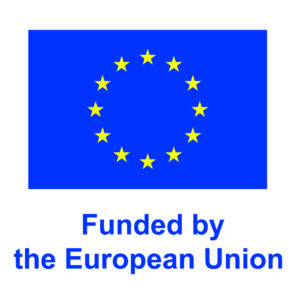About the network
EDJNet is a network of media organisations from all across Europe, producing and promoting data-driven coverage of European issues in several languages. The network brings together dozens of journalists, data analysts, developers, and designers. The network was set up in 2017 and it is coordinated by OBC Transeuropa.
EDJNet works as a collaborative community, news aggregator, and learning hub. A collaborative infrastructure makes it possible for EDJNet members to jointly collect data about and analyse major issues affecting European citizens and countries.
Produced content is made available for free in several languages, always including English. It can be syndicated or reused by anyone within and outside the network under a few simple conditions. Original datasets, tools, and other resources are freely provided to journalists, enabling any newsroom to take advantage of the opportunities offered by data journalism.
The network is open for new members to join, provided that they are media organisations based in Europe and keen on data journalism, and that they are ready to subscribe to EDJNet’s internal rules and to proactively take part in the activities of the network. All existing members need to agree to the entry of a new organisation; there is no membership fee.
EDJNet’s activities are partly funded by the network’s members, and mostly co-financed by the European Commission. The editorial production also relies on some other smaller public or private grants. Agreements with the donors make sure that EDJNet and its members remain independent of any instruction, pressure or request from any EU institution, any state, or any other institution or organisation in all matters concerning the editorial content that is produced.
Network projects
- Mapping Diversity: building upon data made available by OpenStreetMap and Wikidata, this investigation looked at about 150,000 street names in 17 different countries to find out who are the individuals giving their names to streets in some of the largest cities in Europe, what was their gender, origin, field of activity, and more.
- Femicides in Europe: a collaborative investigation looking into the numbers and trends of gender-based violence across Europe, navigating through the staggering lack of recent and comparable data.
- Abuse of preventive detention in Europe: pre-trial detention is used more and more in Europe. But the decision to detain an individual on remand should not be taken lightly, as few events in a person’s lifetime are as traumatic as arrival in prison.
- Access to assisted reproduction in Europe: babies born with assisted reproductive techniques constitute more than 5% of the total in some European countries. Not much is known about the legal and financial barriers hindering access to ART in different countries.
- Locked up – COVID-19 and prisons in Europe: more than half a million people were incarcerated during the COVID-19 pandemic. Little data was made public about the impact of the pandemic in prisons: we traced it by collecting and comparing data on cases and vaccinations from 32 European countries.
- Internet speed in Europe: what are the real internet speeds in European countries and cities? We used data from Ookla’s performance tests to create an interactive map.
- Access to mental healthcare in Europe: depression and anxiety are the most commonly diagnosed mental health conditions. Yet, national public healthcare systems do not always include treatment for these problems – and not all people who need treatment receive it.
- Glocal climate change: 50 years of data from Copernicus confirm that Europe is heating up at every latitude. The data provides estimates of climate warming for more than 100,000 European municipalities.
Contact
Website: https://www.europeandatajournalism.eu/Name: Federico Caruso
Email: caruso@balcanicaucaso.org
Network details
Size: 20 - 50 members
Founded: 2017
Geographical focus: European
Type of members: Media outlets
Legal entity: No
Open to new members: Yes
Subjects
- Climate
- Health
- Politics / policy / democracy
- Social issues
- Justice, Transports, Digital rights
Countries
- Austria
- Bulgaria
- Croatia
- Czech Republic
- Denmark
- France
- Germany
- Greece
- Hungary
- Italy
- Poland
- Portugal
- Romania
- Serbia
- Slovak Republic
- Slovenia
- Spain
- Sweden
Skills
- Data analysis / vizualisation
- Investigative journalism
- Multilingual journalism
- Training
Support/join our network
- Collaborate on editorial projects
- Collaborate on grant applications
- Exchange know-how/trainings
- Join as new members


